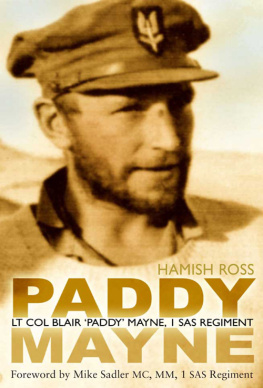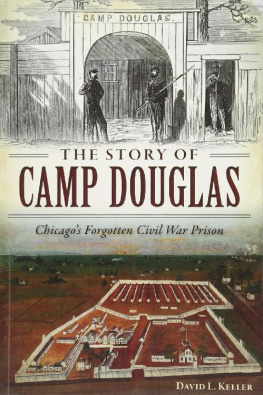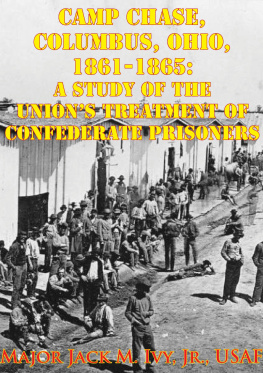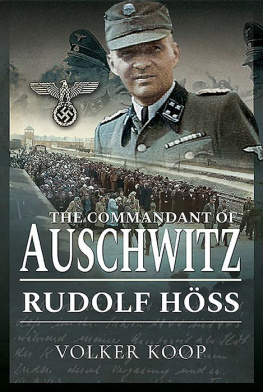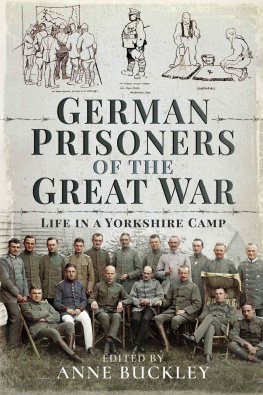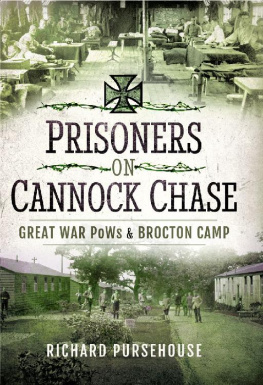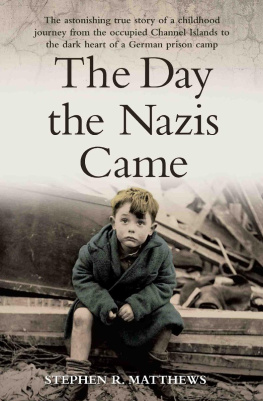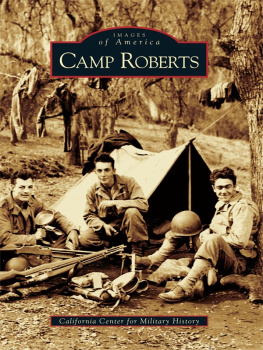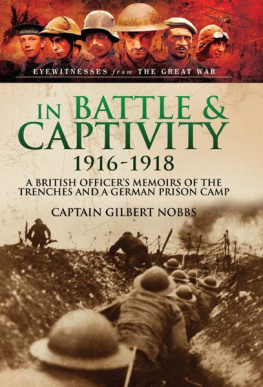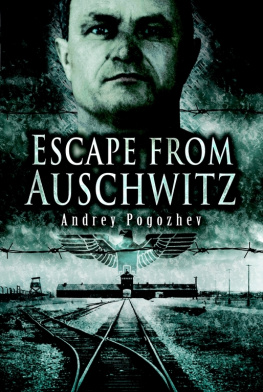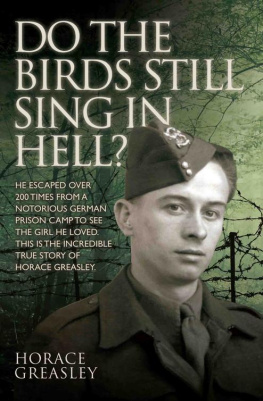Archie Bowman
Be a philosopher; but, amidst all your philosophy, be still a man .
David Hume, An Enquiry Concerning Human Understanding
Archie Bowman
Foot Soldier, German PoW and League of Nations Man
Hamish Ross
First published in Great Britain in 2018 by
Pen & Sword Military
An imprint of
Pen & Sword Books Ltd
Yorkshire - Philadelphia
Copyright Hamish Ross, 2018
ISBN 978 1 52672 805 0
eISBN 9781 5 2672 806 7
Mobi ISBN 9781 5 2672 807 4
The right of Hamish Ross to be identified as Author of this work has been asserted by him in accordance with the Copyright, Designs and Patents Act 1988.
A CIP catalogue record for this book is available from the British Library.
All rights reserved. No part of this book may be reproduced or transmitted in any form or by any means, electronic or mechanical including photocopying, recording or by any information storage and retrieval system, without permission from the Publisher in writing.
Pen & Sword Books Ltd incorporates the Imprints of Pen & Sword Books Archaeology, Atlas, Aviation, Battleground, Discovery, Family History, History, Maritime, Military, Naval, Politics, Railways, Select, Transport, True Crime, Fiction, Frontline Books, Leo Cooper, Praetorian Press, Seaforth Publishing, Wharncliffe and White Owl.
For a complete list of Pen & Sword titles please contact
PEN & SWORD BOOKS LIMITED
74 Church Street, Barnsley, South Yorkshire, S70 2AS, England
E-mail:
Website: www.pen-and-sword.co.uk
or
PEN AND SWORD BOOKS
1950 Lawrence Rd, Havertown, PA 19083, USA
E-mail:
Website: www.penandswordbooks.com
Acknowledgements
T he source of the Bowman Papers is Glasgow University Archive, and I would very much like to highlight the efficiency and courtesy of the archive staff. Additional material comes from the Seeley G. Mudd Manuscript Library branch of Princeton University Library, from the Mitchell Library Glasgow, from Edinburgh University Archive and from the Bundesarchiv-Bildarchiv Koblenz.
I am very grateful for the support of A.A. Bowmans grandchildren, Marjorie Stewart, Janet Macfie, Lydia Bowman and Alastair Gillespie, all of whom shared photographs and documents with me. In addition, Marjorie has written the Afterword.
I also wish to thank A.A. Bowmans niece, Virginia Crawford, for memories of her early years in Princeton and Glasgow.
I would also like to thank Colonel Bobby Steele, TD is the successor regiment to the HLI and the Royal Scots Fusiliers).
Finally, my thanks to Joseph Russo, PhD candidate in German, School of Modern Languages & Cultures University of Glasgow, for translating from the German; and to India Fullarton, Photographic Unit University of Glasgow, for photography.
Glossary
| Captain |
| Campaign for Nuclear Disarmament |
| Colonel |
| Deputy Lieutenant |
| Distinguished Service Order |
| Educational Institute of Scotland |
| Highland Light Infantry |
| Lieutenant |
| Major |
| Officer Training Corps |
| RA | Royal Artillery |
| Royal Air Force |
| Royal Army Medical Corps |
| Royal Engineers |
| Royal Highland Fusiliers |
| Royal Society of Arts |
| Student Christian Movement |
| TA | Territorial Army |
| TD | Territorial Decoration |
| Womens Army Auxiliary Corps |
| Workers Educational Association |
Chapter One
Noble Purpose
And to be a soldier ?
Such is his noble purpose .
William Shakespeare,
Alls Well That Ends Well
B illowing grey and dark clouds from the coast rolled in above the breached line at the River Lys in Nord-Pas-de-Calais on that 9th day of April 1918. Scores of allied prisoners were formed up in a column in front of the breastwork trenches. They had not been fed since the day before, were exhausted after ten hours of bombardment and confused by the swiftness of their capture. Some seemed to be asleep on their feet, some still wore their helmets and some had field dressings on their wounds. No one spoke. They were to be led out, marched away from the front to a railway junction beyond artillery range and transported into Germany.
Their guards were support troops, not the storm troops who pierced the defences, and their field grey uniforms were unstained by the battlefield; they could have come from another realm or dropped from the cloud canopy. The Feldwebel in charge of them fingered the whistle attached to a lanyard that went round his collar, looked around him, was satisfied with their state of readiness, blew one blast and signalled them forward. The column began to move very slowly; they went along a side track, away from the supply routes for the front. It was as though they were mourners at some vast funeral procession, except that they left behind the dying and the dead.
One of the prisoners was Archie Bowman, a lieutenant in the HLI. My vote was cast for a fight to the finish, but Mr Cuthbertson who was in command ordered the surrender. I do not blame him. He is a splendid fellow, and was wounded in two places. But to me the act of surrender was almost unendurable.
The words of a die-hard warrior? Well, he was a 35-year-old family man, he stood 5ft 8in in height, had a record of frail health, and in the country he left to become a soldier had the term been current then he would have been called an egghead. Professor Archibald Allan Bowman held the Stuart Chair of Logic at Princeton, one of Americas prestigious Ivy League universities, and he had been given leave of absence to join the British army.
When hostilities broke out in 1914, the United States wanted nothing to do with Europes wars; according to President Woodrow Wilson it would remain neutral in thought and deed. At Princeton, Bowman kept up with the war news, given the limited extent to which the newspapers reported it, and from February until May 1915 he cut out a series of reports on it from the New York Times .
An expat academic in America holding tenure on a salary of $3,500 a year, he might well have stayed put for the duration, but not Bowman. The right thing for him, he believed, was to serve his country in its hour of need. There was no way round it. He felt, he said: Like Luther, I can do no other. However, he had a wife and child.
Mabel Stewart and Archie Bowman were married on 24 December 1912. Mabel was 25 and Archie was 29. He had just taken up his appointment at Princeton at the beginning of the 1912/13 academic session, and he came back to Glasgow at the Christmas vacation for the wedding. Mabel had been a student of his when he taught at the University of Glasgow before going to Princeton. It was a marriage based on love; they were very close as a couple. When they were apart, in her letters to him, Archie was My Most Dearly Loved, sometimes Dear Heart, and in his letters to her, Mabel was My Own Most Precious Darling or Most Dearly Beloved. So he knew, in those first few years of marriage, that if he felt strongly about where his duty lay, Mabel would support him, although she would be left carrying the heavy end: on her own looking after a baby, continually worrying about him and frightened at the prospect of becoming a young widow. Yet she did it uncomplainingly. As Archie put it: My personal eagerness is splendidly sustained by the backing I get all the time from my wife no small war service.


